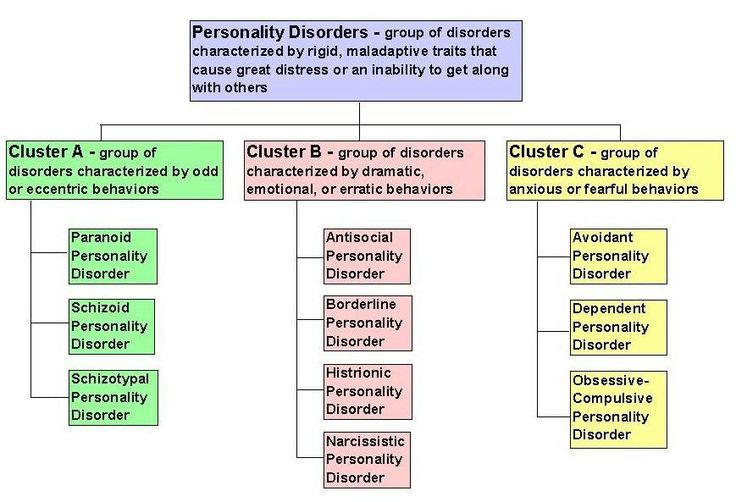Brief Introduction to Personality Disorders
This article gives a brief overview of Personality Disorders, find out more about Personality Disorders at our Public Health Information Session 'Personality Disorders - 7:00pm 14th August 2015.
What are Personality Disorders?
Personality Disorders are a deep rooted and maladaptive pattern of behavior of a specific type, that causes troubles when one reaches adolescence and affects the relationships and performance of a person in society. Personality disorders are further classified into three clusters with each having its own symptoms and traits. Personality disorders are manageable and if provided proper counselling and medication these disorders can be effectively managed.
Brief History of Personality Disorders
History of personality disorders spans back to Greek civilization. Personality disorders were recognized properly by the doctors and physicians in 19th century. These mental health disorders were categorized into clusters during late 20th century. Personality disorders have been known to haunt man from a long time, in each era these disorders were treated differently. Modern researchers believe that ancient Greek and Chinese civilizations had a cure for these disorders [1].
How Personality Disorders Work
These personality disorders are divided into three clusters. Cluster A disorders are characterized by odd thinking, behavior, schizoid and paranoid personality disorder. Person suffering from cluster A disorder shows no or less interest in social affairs and always remains scared of unknown fears. People suffering from cluster B disorder are dramatic and unpredictable in their approach. These people are constant attention seekers but do not regard the feelings of others. Cluster C includes people that are extra sensitive and are excessively dependent on others. Moreover they fear rejection and criticism and are known to not take it well.
Current treatment options for Personality Disorders
Psychotherapy is the treatment that is being used nowadays for personality disorders; this lasts for six months at least, depending on the severity and condition of patient. These are sessions with a trained individual that helps the person recover emotionally and psychologically. Families play a vital role in the process of therapy and a supportive family multiplies the recovery rate at least by two times.
7 Great tips to help manage Personality disorder
Self-therapy is the best treatment for a mental illness and following the below mentioned simple steps will help the patient to recover speedily.
- Help the patient stay calm and in case of any panic attacks help the patient and talk to him about other things rather than talking to him about his fears and source of panic. Staying positive is the best way to fight a personality disorder.
- Do not take any medication without the proper consent of a doctor. Talk to a doctor or a therapist and seek their help and advice.
- Stashing the mind with positive thoughts is also a good remedy in case of personality disorder as this helps in the diversion of attention.
- Help the patient in avoiding anger and try not to seek revenge as the patient is not doing this intentionally, thus family and friends need to understand the complexity of situation.
- Be polite and nice to the patient and show them that small deeds of kindness help a lot, assist them in overcoming their fears.
- Muster up the courage and face your fear, remember that offence is the best defense.
Try to visualize yourself as a successful person who has left behind all his fears and has overcome all the hurdles and obstacles.
Personality Disorders are interesting conditions that illustrate the complexity of the human brain. Personality Disorders are often misrepresented in film & TV by evil villains like Hannibal Lecture. The truth of Personality Disorders is far more interesting that anything that could be penned by a screenwriter; but the stigma left by these stereotypes can seriously impede many sufferers from seeking the help they need. If your interested in learning more about Personality Disorders, then you should attend our Mid-Year Public Health Seminar on Personality Disorders.
Lead by Clinical Director Anneke Bull, this session will provide you with a thorough understanding of Personality Disorders.
Tickets can be bought at the door, booked via email, txt or purchase using the below link.
TICKETS ARE LIMITED. Book now to avoid missing out.


